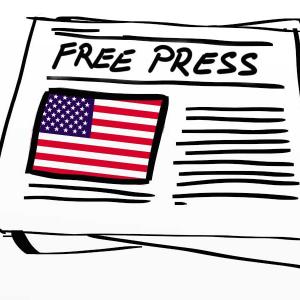Does America have a free press? Many who answer yes appeal to First Amendment protections that shield the press from government censorship. But Sam Lebovic’s history of modern press freedom shows that the right to free speech has been insufficient to guarantee a free press in an age of rising state secrecy and corporate newspaper consolidation. The origins of our contemporary newspaper crises, he suggests, can be traced to failed twentieth-century efforts to guarantee a public right to the news.
Sam Lebovic is Assistant Professor of History at George Mason University, and author of Free Speech and Unfree News: The Paradox of Press Freedom in America, which was published by Harvard University Press in March 2016. He has published academic articles on the role of the media in the wars in Iraq and Afghanistan, on the history of the Fulbright program, on the Beatles and cultural globalization, and on the politics of popular culture during World War II.
Sam's work on the history of press freedom was awarded the American Society for Legal History’s Paul Murphy Prize in the History of Civil Liberties in 2012, and was supported by fellowships from the Center for Cultural Analysis at Rutgers University, The Center for the Cold War and the U.S. at New York University, and the Truman Library Institute. Lebovic currently serves as Associate Editor of the Journal of Social History.
Copies of Free Speech and Unfree News: The Paradox of Press Freedom in America will be available for purchase and signing.
